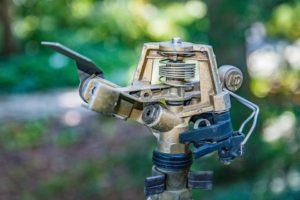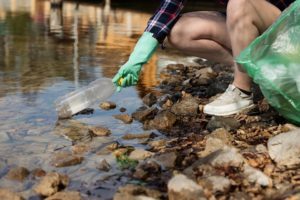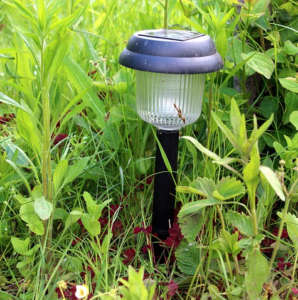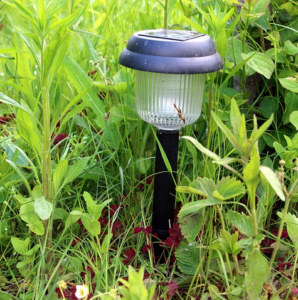Guest Post by Rachael Elizabeth
Earth is our most precious resource, and it’s up to each one of us to preserve it. Going “green” in North Alabama requires little effort, but can save energy, water, and the land for the generations to come. Green living begins at home, so here are a few ideas to green up your living space.
Light
You probably heard it a million times from your parents: “Turn off the lights!” And we should all do that. But even as grownups, it’s still easy to forget.
Natural light is a great way to brighten your home. During the day, open the curtains and blinds. Once you let the sunshine in, there’s no reason to turn on a light. When skies darken, you can turn on lamps with light-emitting diode (LED) bulbs. These bulbs are durable, energy-efficient and will reduce your electricity bill. LED bulbs are directional and small and suitable for kitchens, bathrooms, and everywhere else in your home. With the prices dropping, you can easily replace all heat-producing incandescent bulbs of 40, 60, and 75 watts with LEDs.
Solar Lighting and Energy
Speaking of light, when it comes to illuminating the outside of your home, solar lights are the way to go. Outdoor solar lights are easy to install and there are many types you can choose from. Solar lights use cells that convert sunlight into electricity. They do need to receive direct sunlight during the day to charge up the batteries for nighttime. Other appliances that run on solar power? Water heaters, generator-type electric and heating units, and passive solar home design thermal systems.
Gadgets
Turn off and unplug electronics and appliances when they’re not in use for more than 30 minutes. Televisions, DVRs, and computers draw electricity, even when they’re in “sleep” mode. Screensavers suck up just as much energy as when the computer is being used. Cutting back on the power you use to run your technological life will reduce the electric bill and help you leave a smaller carbon footprint.
Water Conservation
We take it for granted that clean water will always flow from the taps. But even with treatment facilities to sterilize  this resource, water is precious, especially in times of drought. When you prepare your lawn for winter, turn off and drain the sprinkler system. Check the lines for cracks and leaks. The last thing you want is a burst pipe in the spring, sending gallons of water spewing into the street. You can also use rainwater to irrigate yards and gardens by installing a rain barrel. Plant drought-resistant grass to minimize the amount of water you use.
this resource, water is precious, especially in times of drought. When you prepare your lawn for winter, turn off and drain the sprinkler system. Check the lines for cracks and leaks. The last thing you want is a burst pipe in the spring, sending gallons of water spewing into the street. You can also use rainwater to irrigate yards and gardens by installing a rain barrel. Plant drought-resistant grass to minimize the amount of water you use.
Inside the house, patch all pipe leaks and replace the old toilets with low-flush systems. Wash full loads of laundry and dishes. Turn off the water when brushing teeth.
The Three Rs
“Reduce, Reuse and Recycle” isn’t just a slogan. They are rules to live by if you want to be green. Use washable dishes and utensils whenever possible. That disposable plastic and paper end up in the landfill and waterways. If you know you’ll be taking home leftovers from a restaurant, bring your own container — you probably have dozens at home. Instead of buying bottled water, get a reusable bottle. Even saying “no thank you” when a waiter offers you a straw will mean one less piece of plastic in the landfill.

Cutting back the use of plastics that wind up in the trash is a small and simple way to live a greener lifestyle, yet it will ultimately mean a cleaner existence for Earth’s oceans, landfills, nature preserves, and wildlife.
Bring canvas bags to the grocery store. Clean with rags instead of paper towels. Buy recycled products when possible. If your community has a recycling program, be sure to sign up! Reduce the amount of waste you generate, reuse products as much as possible, recycle metal cans, plastics, and paper. Here’s another “R” to add to the list; Repurpose. Find a way to repurpose a discarded item in some other way … get creative!
Compost
You can repurpose a lot of the produce that otherwise goes in the garbage. Your trash can be your garden’s treasure! Put a compost bin in the backyard and use those rotting vegetables and fruit to nourish your plants. It’s one way to fertilize your garden without using harmful chemicals.
Living a greener lifestyle isn’t something we all can do overnight but being more cognizant of the simple things can lead to a cleaner day-to-day existence for planet Earth. Being eco-friendlier is not about the future … it is about right now.
Rachael Elizabeth is a gardening guru and writer. She takes pride tending to her eco-friendly garden that is constantly flourishing with fresh herbs and florals. When she’s not practicing her green thumb she can be found exploring nature on a hike or swimming in the lake.

